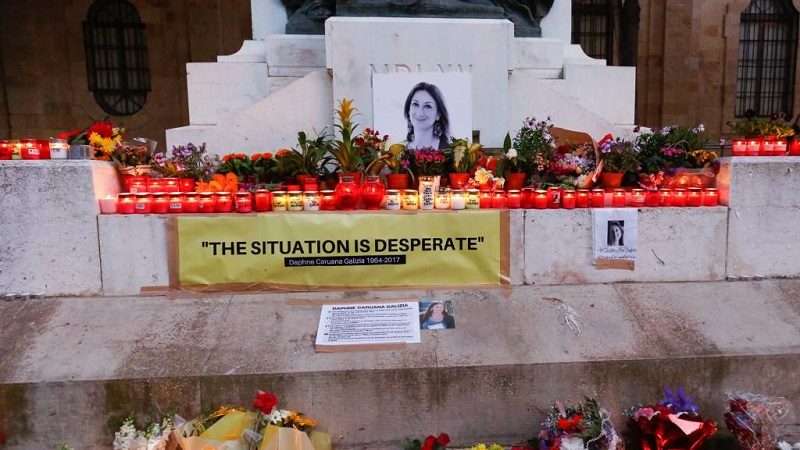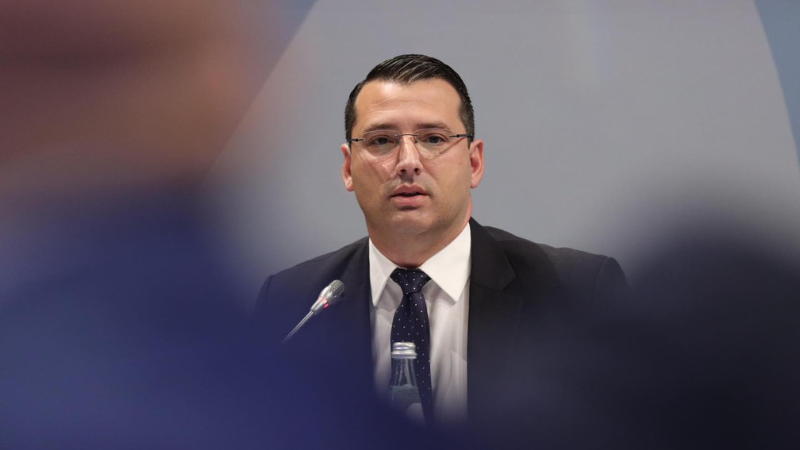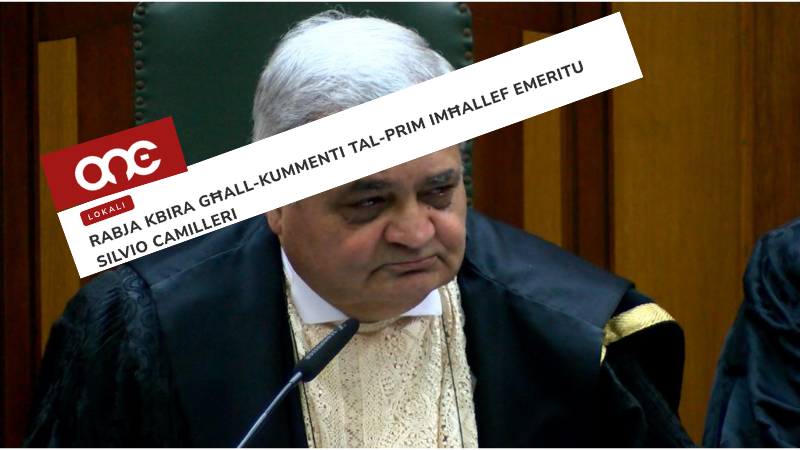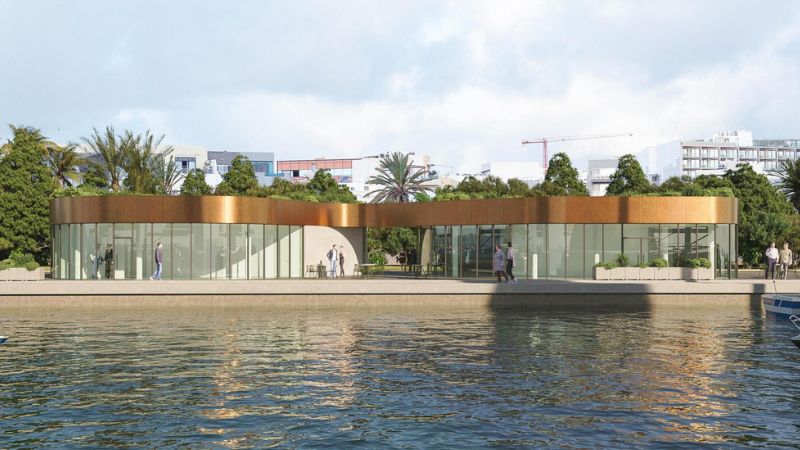In the dead of night, Daphne Caruana Galizia’s memorial at the foot of the Great Siege monument was dismantled. If this was meant to discourage dissidents, the ‘cowards’ hiding under the cover of darkness ought to have thought it through.
Internationally, Caruana Galizia’s murder raised many eyebrows and attracted much warranted scrutiny by some of the world’s most prestigious institutions, including the European Parliament and the Council of Europe.
In the last vigil held at the memorial on Friday, the UK Bureau Director of Reporters Without Borders (RSF), an international organisation defending press freedom, expressed her concern on the dire situation of freedom of expression in Malta.
Only a couple of days later, flowers and candles laid in front of a portrait of a journalist assassinated were removed. If these attempts to silence dissidents were aimed at burying the problem in defence of Malta’s name, they achieved the exact opposite.
This government already has a poor track record: allegations of money laundering and tax evasion, unsolved car bombs, unsustainable construction habits, a calamitous environmental record, rampant clientelism, an allergy to political accountability, and the unsolved murder of a journalist who revealed their wrongdoing.
The government is now blatantly authorising the suppression of criticism. It has already been made clear that an innocent government should have no problem with flowers as a remembrance. It takes a neurotic regime to compulsively dismantle activists’ efforts and launch personal attacks to humiliate and discredit them.

It is telling that while activists place flowers in broad daylight, faceless government puppets cower in the wee hours of the morning, away from sight, stealing flowers from a dead woman’s memorial. If their cause was noble, they would not be ashamed to stand up and be counted.
At the heart of the monument is a yearning for justice and a return to an adherence of democratic values, fuelled by the Caruana Galizia’s assassination. Efforts to stop it are backed by only one front: the Labour Party in government.
The only ones to express opposition to the memorial come from the Labour Party, including its MPs. Glenn Bedingfield has said it should go, using hateful terminology against a dead woman, supported by Labour counsellors proposing its removal and internet trolls on the comment boards who taunt dissidents with figures of an electoral majority.
International institutions have expressed remorse and concern. They have honoured her memory. The European Parliament has a press room in her name, awards are posthumously given to her and vigils are held in London and Brussels.
In Strasbourg, the European Court of Human Rights keep pluralism close at heart when adjudicating on freedom of expression cases. In Malta, the Labour Government is leading a movement to suppress criticism, bullying anyone it cannot buy to turn Malta away from a pluralist society into one in which opinions carry no weight unless they have the blessing of the Prime Minister.
Malta may be an island, but it is connected to the rest of the world. The argument that activists are ruining Malta’s reputation has been milked dry, but citizens calling for justice refuse to lay low. The removal of the candles and flowers from Caruana Galizia’s memorial only led to a renewed drive to maintain the memorial and a determination for democracy to prevail.
It is those who cannot tolerate freedom of expression that are tarnishing Malta’s reputation. It is those trying to suppress calls for justice that show up the dismantling of democracy in the country.













